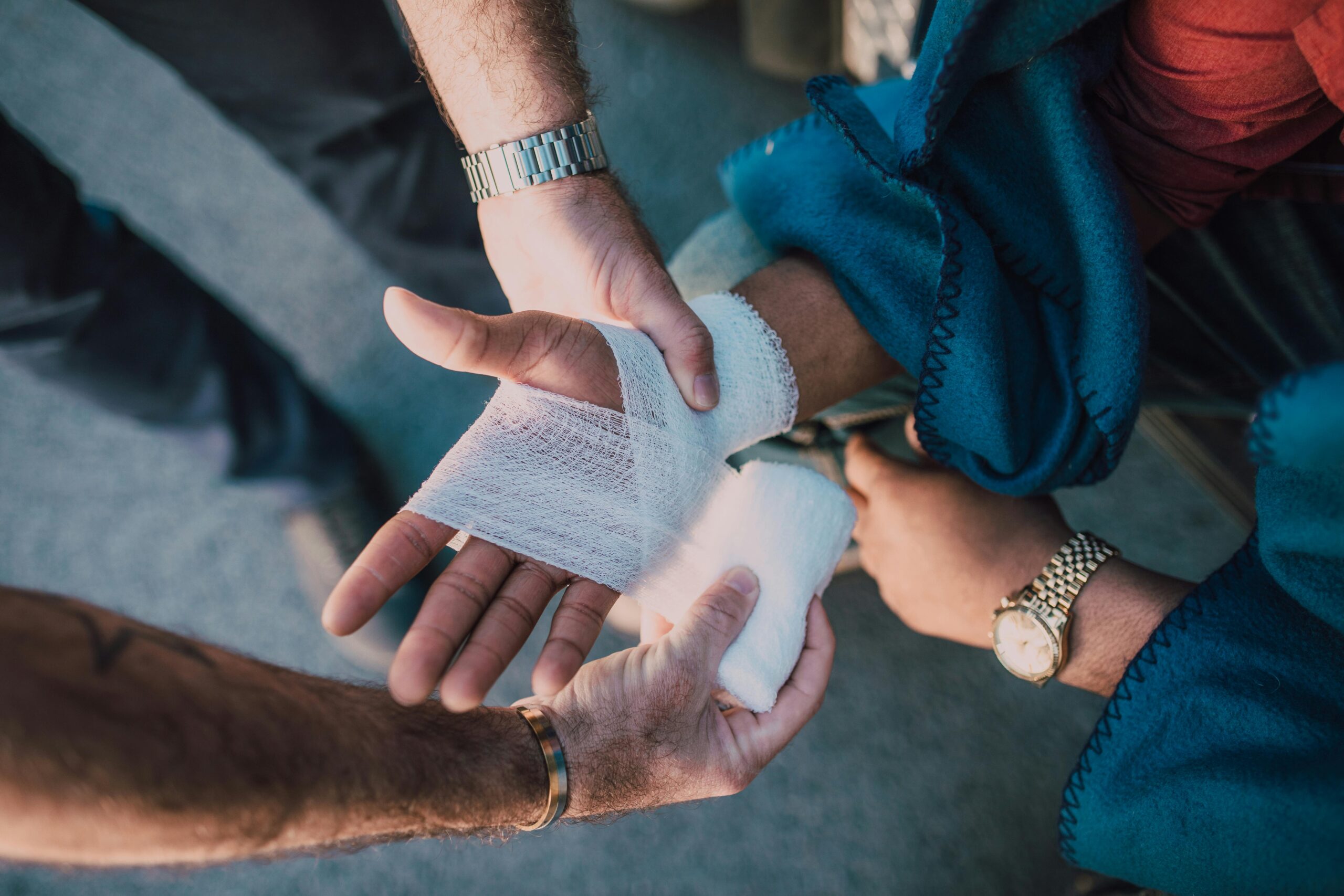Now Reading: Why Speaking with a Personal Injury Lawyer Can Help You Move Forward
-
01
Why Speaking with a Personal Injury Lawyer Can Help You Move Forward

Why Speaking with a Personal Injury Lawyer Can Help You Move Forward
After an accident, life can feel completely upended. Physical pain, medical bills, lost income, and emotional trauma can leave you feeling overwhelmed and uncertain about what comes next. Whether you’ve been hurt in a car accident, a workplace incident, or a slip and fall, understanding your rights and options is crucial. Speaking with an experienced attorney can help you regain control, protect your future, and obtain the compensation you deserve.
Seeking professional legal guidance like Shore Law personal injury help can make all the difference. A personal injury lawyer does more than handle paperwork—they provide support, advocacy, and direction at a time when you need it most.
Understanding Personal Injury Law
Personal injury law, often referred to as tort law, allows injured individuals to pursue financial compensation from those responsible for their harm. According to Justia’s overview of personal injury law, these cases generally involve proving that another person’s negligence or wrongful actions caused your injuries.
Common personal injury claims include:
- Car, truck, and motorcycle accidents
- Slip and fall or premises liability cases
- Medical malpractice
- Product liability
- Workplace accidents
- Wrongful death
While these situations vary in complexity, the goal remains the same: holding negligent parties accountable and helping victims rebuild their lives.
Why Speaking with a Lawyer Early Matters
After an accident, victims often try to manage their claims on their own, thinking they can negotiate directly with insurance companies. Unfortunately, insurers often prioritize their bottom line over your recovery. Having legal representation early in the process ensures that your rights are protected from the start.
Protecting Your Claim from Costly Mistakes
From the moment an accident occurs, every statement, document, and decision can affect your claim. Insurance adjusters might ask leading questions, request recorded statements, or encourage you to settle quickly before you understand the full extent of your injuries.
A personal injury lawyer acts as your advocate, handling communication with insurers and ensuring that nothing jeopardizes your claim. They know the tactics insurance companies use and can counter them effectively.
Meeting Legal Deadlines
Each state has a statute of limitations that determines how long you have to file a personal injury lawsuit. Missing this deadline could mean losing your right to compensation entirely. An attorney ensures all paperwork is filed correctly and on time, keeping your case on track from start to finish.
How a Personal Injury Lawyer Helps Build Your Case
Successfully proving a personal injury claim requires more than simply stating you were hurt. You need clear evidence that someone else’s negligence directly caused your injuries. A lawyer gathers and organizes this evidence to build a compelling case.
Investigating the Accident
An attorney begins by conducting a thorough investigation into how the accident occurred. This may include reviewing police reports, interviewing witnesses, collecting photographs or video footage, and examining physical evidence from the scene.
In some cases, they work with experts such as accident reconstruction specialists or medical professionals to analyze details and establish liability. This investigative process ensures that your claim is based on solid, verifiable facts.
Documenting Damages
To recover fair compensation, your lawyer must show the extent of your damages. These include not only immediate expenses but also long-term financial and emotional consequences. Typical damages in personal injury cases include:
- Medical bills and future healthcare costs
- Lost income and reduced earning capacity
- Property damage
- Pain and suffering
- Emotional distress
- Loss of companionship (in wrongful death cases)
By thoroughly documenting these damages, your attorney ensures that no part of your recovery is overlooked.
Negotiating with Insurance Companies
Insurance companies often make initial offers that are far below what your case is truly worth. They may argue that your injuries aren’t severe or that you were partially at fault for the accident.
A personal injury lawyer uses negotiation experience and evidence-based arguments to push for fair compensation. If the insurer refuses to settle reasonably, your attorney can take the case to court and present your claim before a judge or jury.
The Emotional and Practical Benefits of Legal Representation
Recovering from an injury isn’t just about finances—it’s about emotional healing, stability, and the ability to move forward. Having a lawyer handle the legal aspects of your case gives you the time and peace of mind to focus on recovery.
Reducing Stress During a Difficult Time
After an accident, you may be dealing with doctor visits, rehabilitation, and disruptions to your normal life. Managing legal procedures on top of that can feel overwhelming. Your lawyer takes on that burden, handling every step of the claim while keeping you informed and supported.
They can also advise you on practical issues like how to handle medical bills while your case is pending or how to document your recovery for the strongest possible claim.
Ensuring Fairness and Accountability
Accidents often happen because someone failed to act responsibly—whether it’s a distracted driver, a negligent property owner, or an employer who ignored safety regulations. Pursuing a personal injury claim isn’t about revenge; it’s about accountability and justice.
By holding negligent parties responsible, your case can help prevent similar incidents in the future and promote safer practices in your community.
Gaining Perspective and Confidence
A personal injury lawyer provides objective, professional advice when emotions are running high. They help you understand the legal process, what to expect at each stage, and which decisions will serve your best interests.
This clarity can make a significant difference in how you approach your recovery—transforming uncertainty into empowerment.
What to Expect During the Legal Process
Many people are hesitant to contact a lawyer because they fear the process will be lengthy or intimidating. In reality, most personal injury claims follow a structured process designed to achieve a fair resolution efficiently.
Step 1: Consultation and Case Evaluation
Your first meeting with an attorney is typically a free consultation. During this discussion, you’ll explain what happened, provide any documentation you have, and receive an initial assessment of your case. The lawyer will outline potential strategies, timelines, and what compensation may be available.
Step 2: Investigation and Evidence Gathering
Once you agree to move forward, your lawyer begins collecting evidence and reviewing records. They may contact witnesses, obtain accident reports, and work with medical professionals to fully document your injuries.
Step 3: Negotiation or Litigation
Many cases are settled outside of court through negotiation. However, if the insurance company refuses to offer a fair amount, your attorney can file a lawsuit and represent you at trial. Experienced litigators—like Megan Shore Toca, who has extensive experience in personal injury law—know how to present strong, persuasive cases in court.
Step 4: Settlement and Recovery
Once a settlement or verdict is reached, your lawyer ensures that the payment process goes smoothly. They’ll also help manage any outstanding medical liens or insurance claims, allowing you to focus on moving forward.
When to Contact a Personal Injury Lawyer
While it’s best to consult a lawyer as soon as possible after an accident, there are certain situations where legal guidance becomes absolutely essential.
Serious or Long-Term Injuries
If your injuries require surgery, rehabilitation, or result in long-term disability, the financial impact can be enormous. A lawyer ensures that your claim accounts for future costs, not just immediate expenses.
Disputed Liability
If the other party denies responsibility or multiple parties may be involved, legal representation is critical. Your attorney will gather evidence and present a clear argument proving who was at fault.
Low or Denied Insurance Offers
When insurance companies refuse to pay a fair settlement—or deny your claim entirely—a lawyer can step in to fight for your rights.
Moving Forward After an Accident
A serious injury can change your life in an instant, but with the right support, you can regain stability and confidence. Speaking with a personal injury lawyer helps you take control of your situation, understand your legal options, and pursue the compensation you need to rebuild.
From gathering evidence to negotiating settlements, a lawyer’s role extends far beyond the courtroom—they become your advocate, your guide, and your partner in recovery. With professional legal help, you don’t have to face insurance companies or complex legal systems alone.
In the end, reaching out to an experienced personal injury attorney isn’t just about getting justice—it’s about moving forward, reclaiming your peace of mind, and ensuring a more secure future for yourself and your family.
About the author: Irma C. Dengler
With a BA in communications and paralegal experience, Irma C. Dengler decided to make the best of her writing skills. She decided to turn complicated legal matters into something more palatable for the masses. Therefore, Irma became a law communicator who writes about everyday problems so everyone can understand them and take the appropriate action. She specializes in personal injury cases, as they are more common than anyone thinks, but her areas of expertise also include civil law, criminal law, insurance-related issues, and more.











